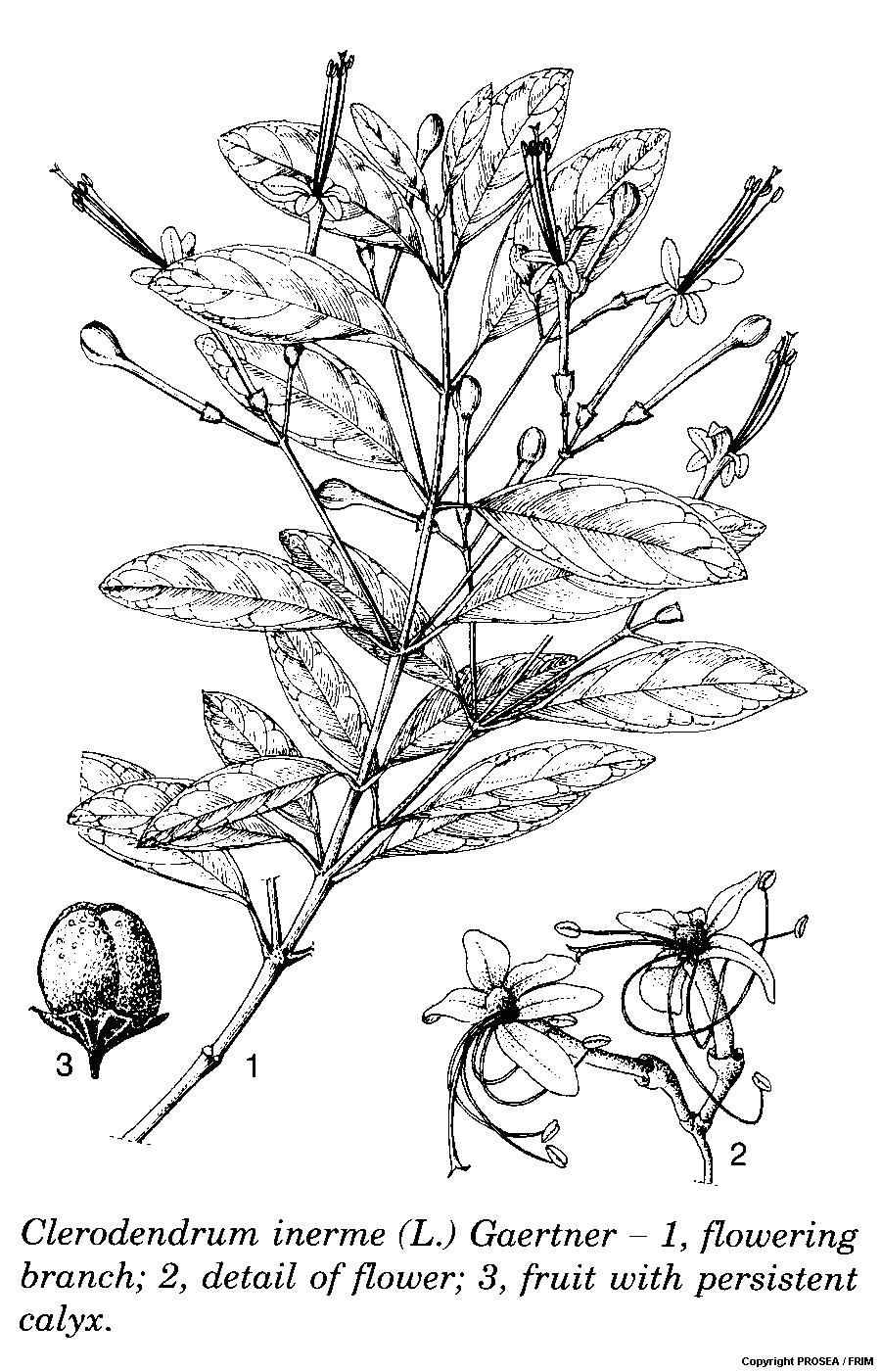Clerodendrum inerme (L.) Gaertner
Family
Verbenaceae
Synonyms
None
Vernacular Names
| Malaysia | Bunga pawang, langa langa, terong gambul. |
| English | Seaside clerodendron, garden quinine. |
| Indonesia | Kembang bugang (Sundanese), wiri salo (Buginese), gambir laut Moluccas). |
| Philippines | Mangongot (Tagalog), baliseng (Bisaya), samin anga (Sulu). |
| Thailand | Sammangaa (Central, eastern), som neraa, sak khree yaan(Peninsular). |
| Vietnam | Ch[uf]m g[oj]ng. |
Geographical Distributions
Clerodendrum inerme is from the coast of subtropical and tropical India to Australia, almost throughout the Pacific, and northward to southern China. It is introduced in other parts of the tropics to control beach erosion and as an ornamental.
Description
C. inerme is an evergreen erect bush, often scrambling or scandent that can reach up to 3 m tall but sometimes a liana and measures up to 13 m long.
The branches and branchlets are slender while the nodes are not annulate.
The leaves are elliptical or narrowly lance-shaped, measuring 2.3-10 cm x 0.8-4.5 cm, acute at the base, obtuse or shortly acuminate at the apex, entire, glabrate above, almost glabrate beneath, aromatic and with the petiole is 0.5-1 cm long.
The cymes are axillary or supra-axillary with 3-7-flowered, solitary, opposite and measure 4.5-9.5 cm long. The sepal is bell-shaped; with tube is about 4 mm long, 5-toothed and green. The petal is hypocrateriform, slender tube, measures (1.5-)2-3.5(-4) cm long, with lobes measuring 0.4-0.8(-1.1) cm long, white or tinged purple and fragrant. The stamens are long exserted, reddish to purple and the fruiting sepal accrescent to 1.5 cm in diametre.
The drupe is 0.8(-1.9) cm in diametre, bright green but turns black or brown and splits into 4 pyrenes.
Ecology / Cultivation
C. inerme is a polymorphic species of seashores, saline marshes and swamps, muddy tidal river banks, and the edges of mangrove forests.
Line Drawing / Photograph
Read More
1) Safety
References
- Plant Resources of South-East Asia No. 12(2): Medicinal and poisonous plants 2.



